India and China have struck a new deal over the Line of Actual Control in the Himalayas, but will it guarantee peace?
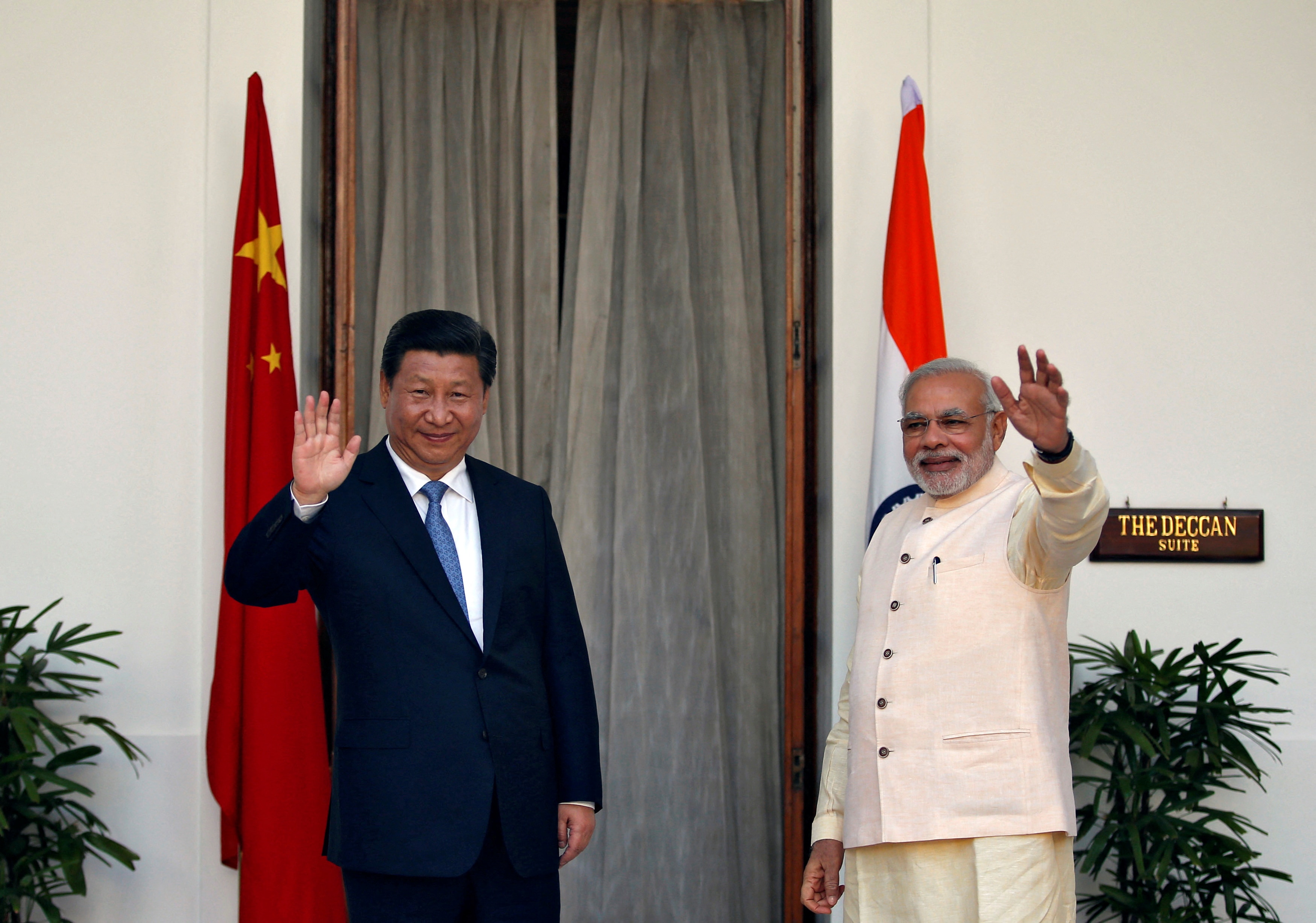
The announcement of a deal for the LAC comes as Xi Jinping and Narendra Modi head to a summit of world leaders this week in Russia.
High in the Himalayas, the Line of Actual Control (LAC) has been anything but under control for the world powers who oversee it.
Tens of thousands of Indian and Chinese troops have been involved in a tense face off there for years, but a pathway to peace might have just been agreed to.
More than four years since violent clashes killed soldiers on both sides, the two countries have struck a deal over the control of the contested border area.
Indian Foreign Minister Subrahmanyam Jaishankar said on Monday, local time, that an agreement on patrolling arrangements along the LAC had been struck.
A Chinese foreign ministry spokesperson confirmed the deal on Tuesday, but provided no further details.
So how significant is this agreement? Here's a look at what it means for the two Asian giants and whether it will work.
How did the dispute start?
Three nuclear-armed countries claim control of various parts of Kashmir: India, China and Pakistan.
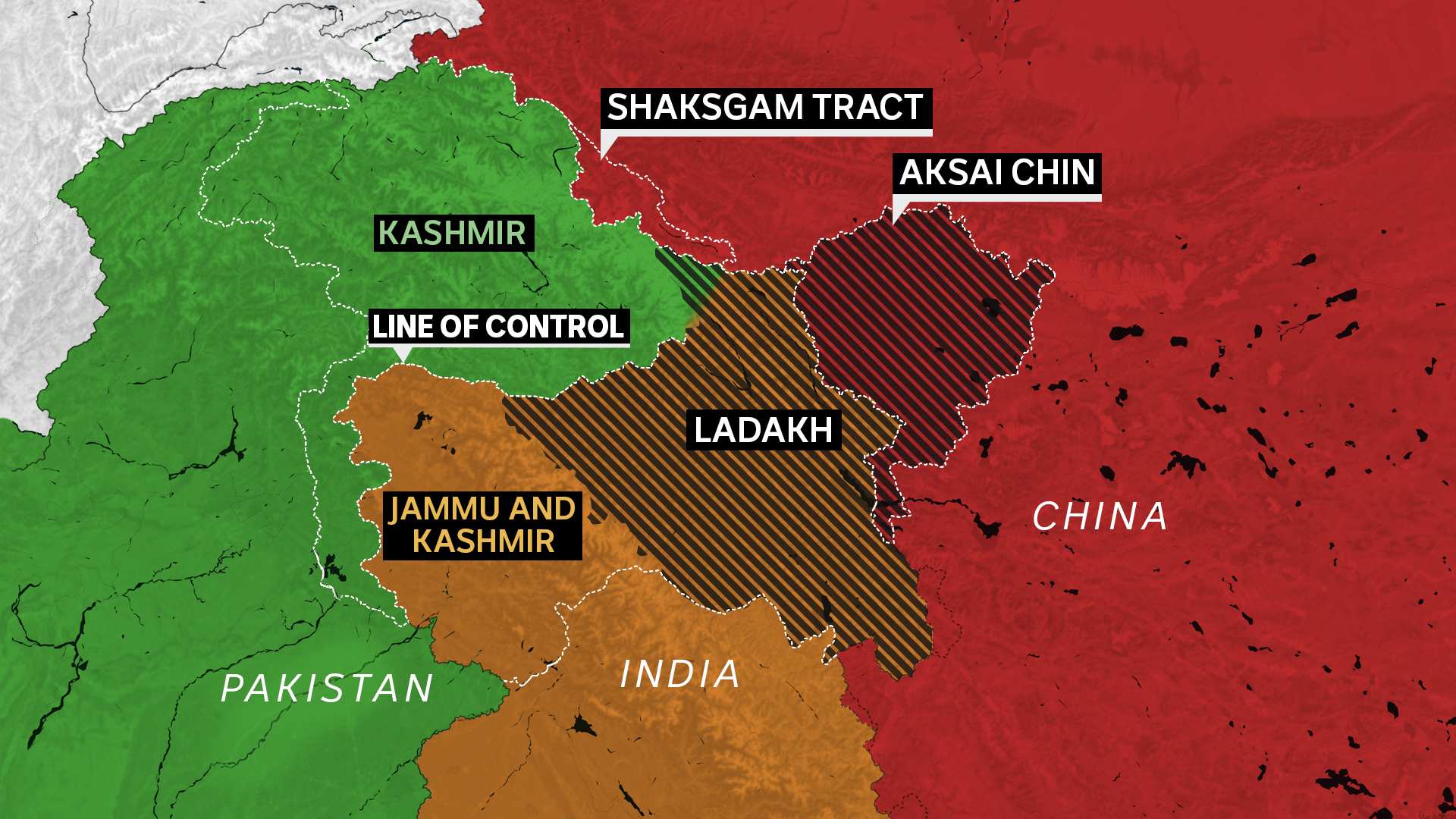
India, Pakistan and China all control parts of the Jammu and Kashmir region, with Ladakh a key flashpoint between India and China.
The area has been contested between the nations since the partition of the British Indian Empire in 1947.
India and Pakistan have clashed many times over Kashmir, including in 2019 when then-Pakistan prime minister Imran Khan warned the UN of the potential for nuclear war.
China and India also went to war over the region six decades ago — a conflict that ended in 1962 in an unstable truce.
No border has ever been established along the Himalayan stretch dividing India and China, however, a loosely demarcated 3,380-kilometre-long line, referred to as the Line of Actual Control, splits the two countries.
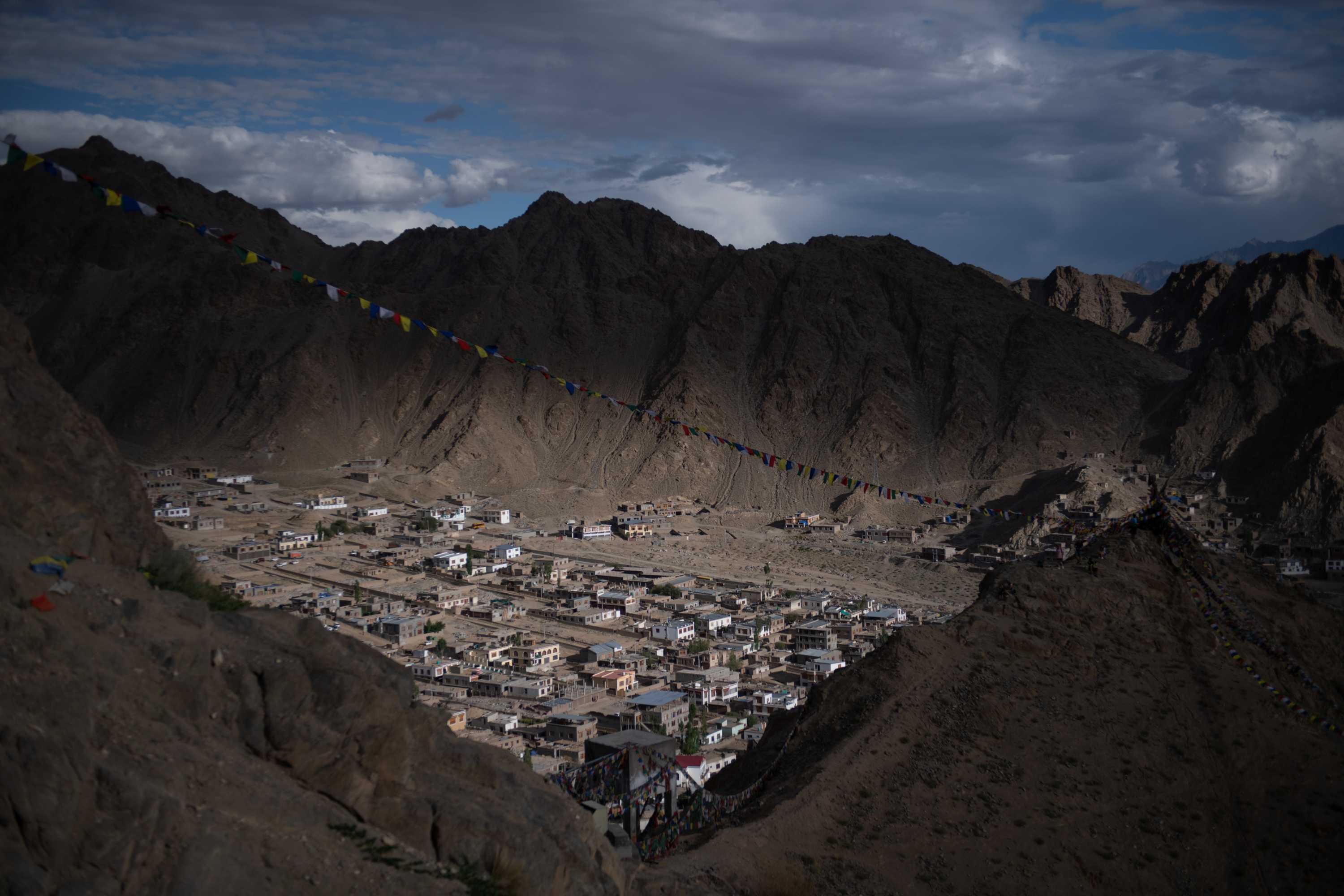
The disputed border between India and China stretches from the Ladakh region (pictured) to the Indian state of Sikkim.
Both countries claim large swathes of the other's land as their own in the remote territory.
Rivers, lakes and snow-capped mountains make patrolling the area difficult.
Despite a peace agreement that was struck in 1996 stating that no shots would be fired by either side at the border, there has been bloodshed at the LAC.
Twenty Indian soldiers and four Chinese soldiers died in bloody clashes involving clubs, sticks and rocks in 2020 in the Ladakh region.
That prompted both sides to move tens of thousands of troops and military equipment closer to the freezing highlands.
Hand-to-hand battles in 2021 and 2022 left soldiers on both sides injured.
The tense stand-off between India and China has continued since, with officials working to de-escalate the situation.
How will the new agreement work?
Few details of the deal have been made public.
Mr Jaishankar said that the agreement covered "patrolling, and with that we have gone back to where the situation was in 2020 and we can say … the disengagement process with China has been completed".
"We always said that if you disturb the peace and tranquillity how can the rest of the relationship go forward?"
Mr Jaishankar offered few details on the deal, however a senior Indian military official told Reuters that both countries would patrol contested points of the border on an agreed schedule.
The official said that both sides would patrol the Ladakh area, the site of the deadly clashes in 2020, to ensure no violations.
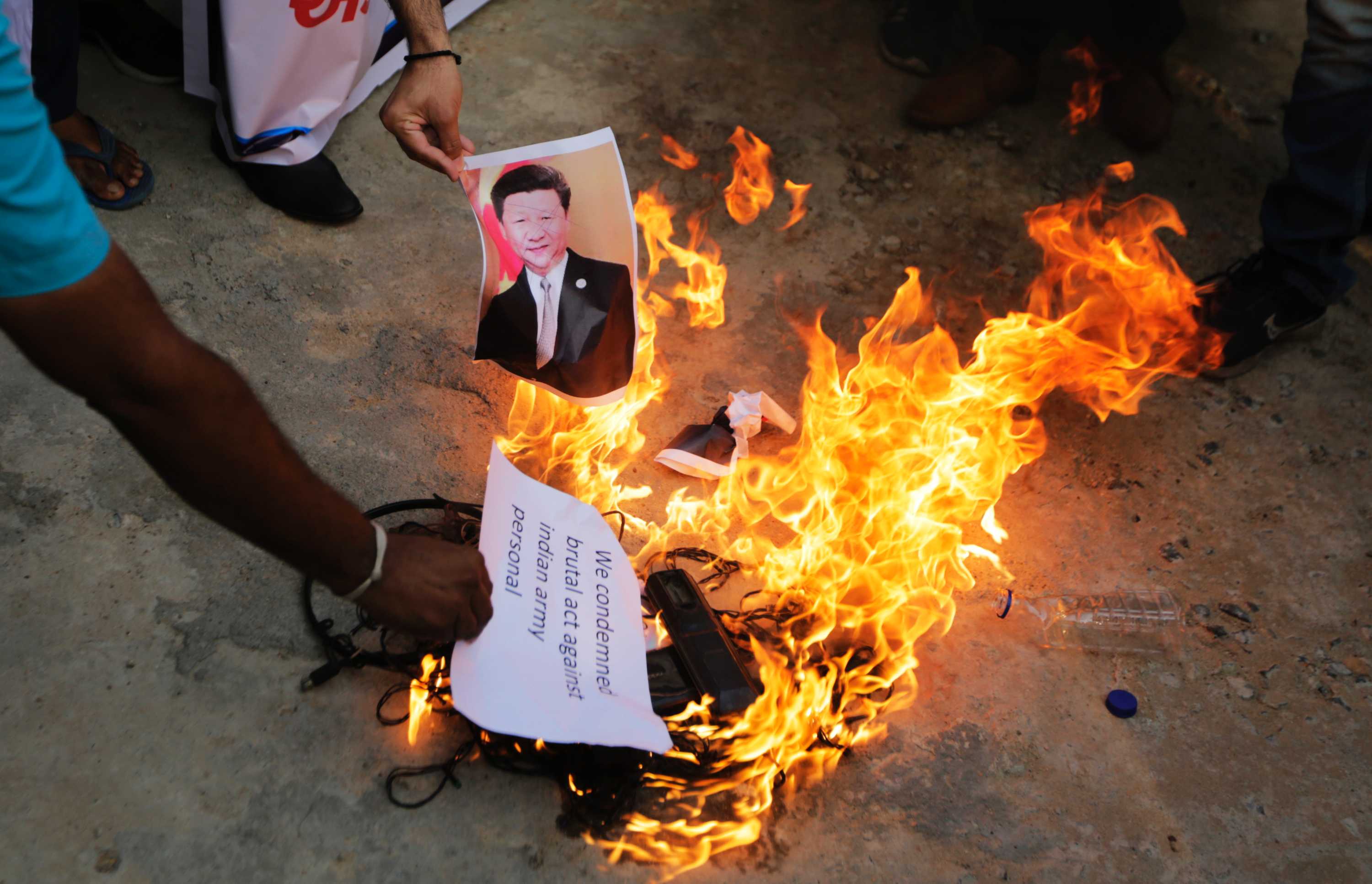
There has been plenty of tension between India and China over issues at the LAC in recent years.
The senior military official also said troops would be pulled back slightly from their current positions to avoid face-offs.
The announcement comes before Indian Prime Minister Narendra Modi travels to Russia for meetings with nations including Brazil, Russia, India, China and South Africa (BRICS).
India's foreign secretary confirmed on Tuesday that Mr Modi would meet China's President Xi Jinping on the sidelines of the summit this week.
Will the deal guarantee peace?
Associate Professor of History at the Australian National University, Meera Ashar, said the confirmation of the deal ahead of the BRICS summit "may tell us something about its nature and significance".
She said similar agreements were struck before summits in 2017 and 2020 that proceeded meetings between Mr Modi and Mr Xi.
"I would read this as a strategic move rather than a serious, successful negotiation, or even a move towards a permanent resolution on matters of the LAC," Dr Ashar said.
"This has to do with the fact that amongst other things, India and China do not share a common understanding of the 'perceived LAC'."
She said that lack of common ground stems from the colonial period, where the boundaries of the countries "were drawn up without much consent from either nation".
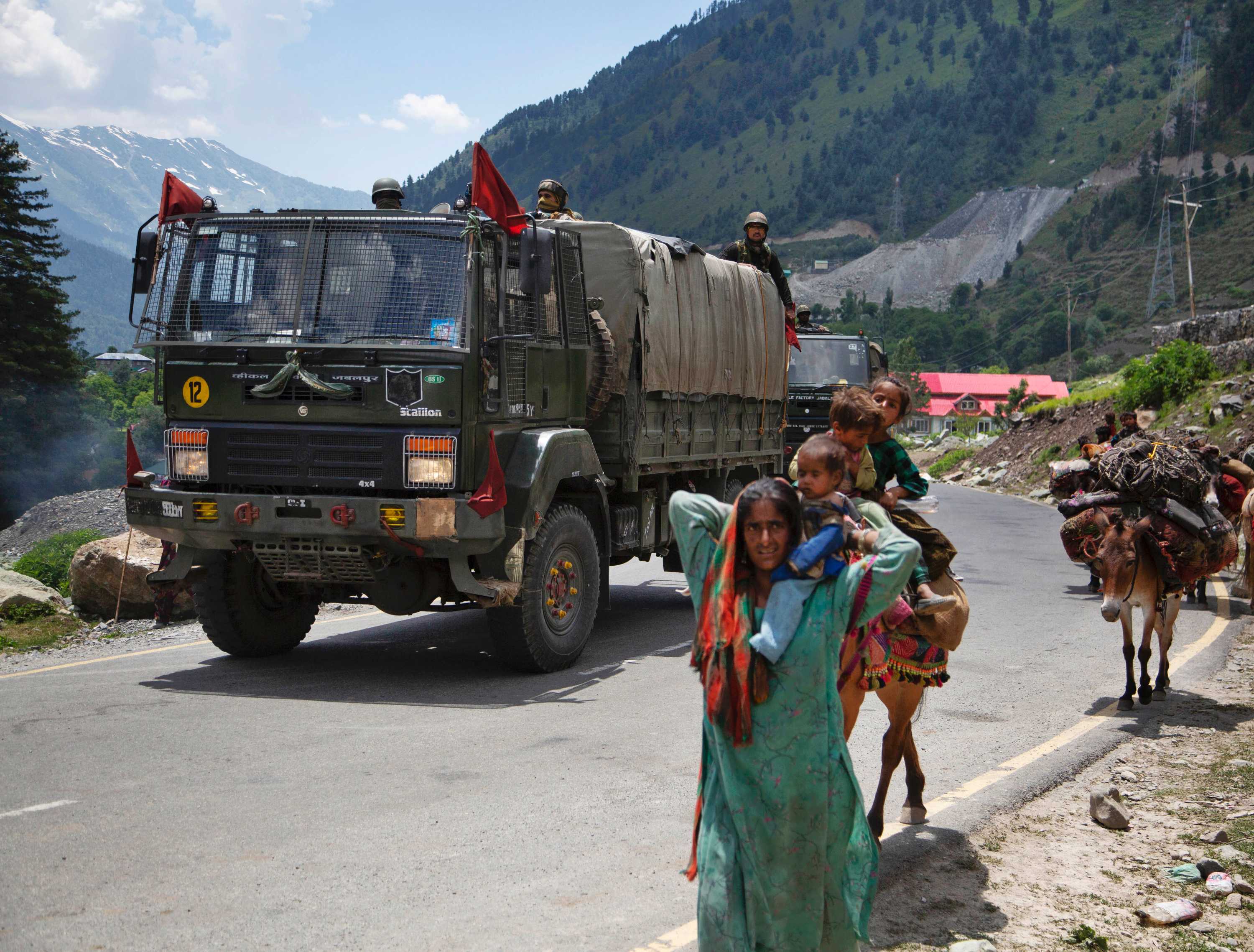
India and China have maintained a significant military presence in the remote area for years.
Resident senior fellow at the Australian Strategic Policy Institute, Rajeswari Pillai Rajagopalan, was also unconvinced.
With "something like 100-120,000 troops eyeball-to-eyeball" along the border, she said any deal that tried to avert conflict was welcome, but she said China had breached deals designed to keep the the peace before.
"China is a lot more powerful today, it is therefore a lot more aggressive with each of its neighbours," she said.
"I hope that the Indian political establishment and the military establishment are realistic enough to understand that this deal is not going to remove all the problems and that you still need to have your eyes on the border.
"The China challenge goes well beyond the border, and it has got to do with China's hegemonic and hierarchical view of the region and the world.
"And that India doesn't want to live in a China-dominated Asia will always be an issue."
China was India's top supplier of goods last year, and some business leaders and economic advisors have praised this deal as a pathway to improved economic ties.
China analyst at Jawaharlal Nehru University, Professor Srikanth Kondapalli, said despite a Chinese push to improve business ties in recent months, he wasn't convinced this deal would help.
"It is also too early to say about business improvement in India-China relations," Professor Kondapalli said.
"Their influence is limited, while security concerns since (the) Galwan clashes are more intense."
ABC/wires
By:https://www.abc.net.au/news/2024-10-22/india-and-china-reach-border-agreement-kashmir-ladakh-pakistan/104500092(责任编辑:admin)
下一篇:US man sues McDonald's after testing positive for E coli
 Socceroos rescue a point
Socceroos rescue a point  Wallabies thrash Wales 52
Wallabies thrash Wales 52 Jake Paul beats Mike Tyso
Jake Paul beats Mike Tyso Live updates: England vs
Live updates: England vs  US election 2024: Donald
US election 2024: Donald  US election live: Kamala
US election live: Kamala
- ·North Korea's latest weapon agains
- ·Hezbollah says Israel 'cannot impo
- ·Inside the rise of US oligarchs and how
- ·Thailand's worst suspected serial
- ·Tabi shoes are turning heads from Holly
- ·FBI arrests Florida man planning attack
- ·Illegal immigrant gets life sentence fo
- ·Bibles, water, watches and sneakers: Do
- ·North Korea's latest weapon against
- ·Hezbollah says Israel 'cannot impose
- ·Inside the rise of US oligarchs and how i
- ·Thailand's worst suspected serial ki
- ·Tabi shoes are turning heads from Hollywo
- ·FBI arrests Florida man planning attack o
- ·Illegal immigrant gets life sentence for
- ·Bibles, water, watches and sneakers: Dona
- ·US to give Kyiv anti-personnel landmines
- ·An arrest warrant for Benjamin Netanyahu
- ·One of Vietnam's high-profile politi
- ·Shanghai Walmart Attack: A Man Randomly S
- ·South Korean police officers jailed over
- ·Cambodia publicly shames maid deported af
- ·North Korea to use all forces including n
- ·Philippines condemns China attack of Viet
- ·US adds 2 more Chinese companies to Uyghu
- ·North Korean defector steals South Korean
- ·Malaysia deports Cambodian worker for cal
- ·Rebels battle for Myanmar junta’s weste

